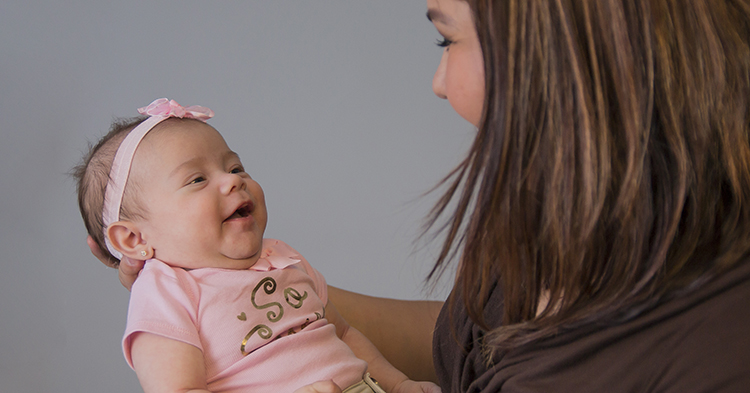
As a former nurse, Catrina Popelier spent years working with new and expectant mothers experiencing depression, anxiety and stress. She wants people who see these new mothers to know that it’s ok to ask if they need help.
“If you have that trusted relationship, it’s ok to ask,” said Popelier, who is the program manager for children’s health at First Things First, Arizona’s early childhood agency. “The answer is always going to be no if you don’t ask.”
May is National Maternal Mental Health Month and is designed to bring awareness and reduce the stigma of postpartum depression and other perinatal mental health disorders.
Each year, hundreds of thousands of parents suffer silently because they don’t know that what they are experiencing is common and treatable or they feel embarrassed and/or ashamed, according to Postpartum Support International (PSI), which provides parents and professionals with direct support and resources to help women experiencing emotional difficulties during and after pregnancy.
One in five moms in the U.S. suffers from postpartum depression. Popelier encourages providers, such as child care workers, home visitors and family members to approach the topic with open communication.
“‘Is there anything I can do to help? How have you been sleeping lately?’” she said. “Asking those type of questions can open a pathway of communication. We’re not asking anyone to be a clinician. But if they are a bridge to that communication or even being there and being that supportive connection every day can mean a lot.”
Today, there’s a push to normalize the mental health journey of every family.
“Part of the normalization is knowing that mental health is akin to physical health,” Popelier said. “When we’re doing all the things to take care of our physical health, we can’t leave mental health behind. Why has there been this huge push? We know that a baby and its mother are intertwined. The baby is learning how to communicate. They’re experiencing emotions. Learning how to regulate their emotions. When we have a parent that’s maybe angry or nonresponsive, it adversely starts affecting the baby, as well. Untreated mental health concerns affect the whole family unit.”
There are ways to be a connection for families to know that they’re not alone.
“Most treatment decisions are relationships based on trust,” Popelier said. “That person might not be ready to hear that and they might not be there yet, but that doesn’t mean that they’ll never be there.”
A new national hotline provides free, confidential support, resources and referrals to any pregnant and postpartum mother facing mental health challenges and their loved ones. The National Maternal Mental Health Hotline service is available via phone and text in English or Spanish. Pregnant and postpartum moms and their partners can call or text, 1-833-943-5746 to connect with counselors 24/7.
The hotline will also be helpful to early childhood providers, who sometimes are on the frontlines of working with families with a new baby.
PSI offers these ways to help a mother experiencing a perinatal mental health disorder:
- Let her know that PSI’s Helpline (1-800-944-4PPD) provides comfort and support. It is an excellent first stop for support and care and you do not need a diagnosis to get help. Make the call or send the text if she gives you permission and needs help doing it.
- Tell her that she’s doing a great job, even though she might not feel like it.
- Tell her you can see her baby is comforted by her and loves her.
- Hug her and remind her that she is loved and valued by many, including her baby.
- Provide a safe space for her to express her anxiety and fears.
- Make sure she knows that it’s clear she’s trying her best, that you are proud of her, and that every new mom struggles even though it might not seem that way.
- Don’t ask her what you can do to help. Do it. Laundry, cooking or ordering takeout, and watching the baby so she can have time alone are all ways to provide support.
- Tell her you are proud of her for all she is doing.
- Make sure she knows PMH disorders are common and temporary and that it is okay to ask for help.
Popelier encourages those around new and expectant mothers to be themselves.
“I think some people worry about reaching out to others because they’re just not sure of what the intended outcome might be,” she said. “But being authentic, being communicative and supportive helps parents feel like they’re not alone.”





